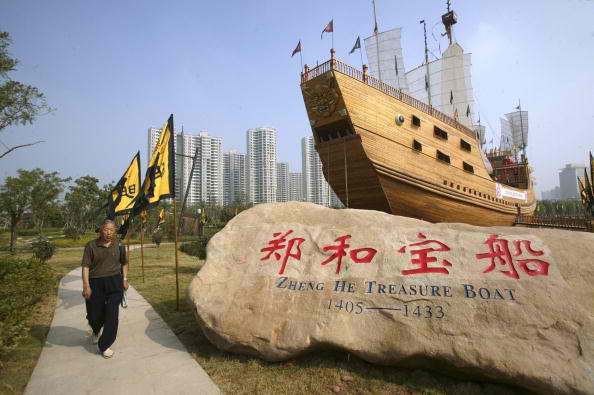Right now, China stands as among the leading purveyors of global free trade. But quite a long time ago, the billion people-strong nation was once averse to the idea of building overseas commercial ties--a scenario that is now repeating itself in the West.
Back in the 1400s, China possessed great potential to lead the world both in economic and technological terms. The so-called "Treasure Fleet" naval vessels, led by Admiral Zheng He, have enabled the Chinese to conduct trade in places as far as Africa years before Christopher Columbus landed on American soil.
China's early engagement in global free trade resulted in the rise of the Chinese merchant class. Such was eventually seen as a threat by the country's political elite, which pressured Ming Dynasty emperors into stopping the sea voyages indefinitely by 1430.
Since then, China effectively closed itself from the rest of the world, allowing the West to move forward during the Industrial Revolution at a rate the Chinese could have achieved had Zheng's voyages been allowed to continue, Business Insider reported.
Now that China is fast catching up with its Western counterparts, the world currently bears witness to the same trend the Chinese once followed hundreds of years back. The likes of the U.S. and the U.K. are increasingly becoming lenient toward protectionism driven by rent-seeking domestic industries.
Competition, which comes naturally with international trade, has become a thing of aversion by economic elites threatened by low prices from foreign counterparts. Such attitude has become the driving forces behind the Trump Administration and Brexit, both of which propose their own local-first policies.
But China, with its newfound position as a global economic leader, is not keen on the idea of closing borders, much so if it involves some of the world's industrial figureheads. The Chinese government's One Belt One Road (OBOR) initiative, for instance, greatly relies on barrier-free mobility.
Although China's OBOR initiative is controversial given the country's rather-precarious position in the eyes of international observers, it nonetheless proves that free trade attitudes have indeed tilted toward the Asia-Pacific, quite far from its origins in the West.



























